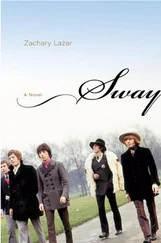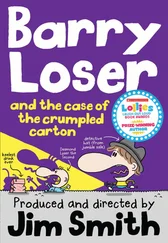My son’s treatment has persuaded him that his addiction has no meaning. It makes no sense to look for causes — to look for causes is to overlook the real cause, which is the addiction itself, and this is to invite relapse. “Don’t look for some romance,” he tells me. He means don’t look for a story, a narrative, a sense of coherence. If this view is what’s helpful to him, then it’s unhelpful for me to keep probing for more. Even to blame myself, according to this logic, is simply egotistical. But this outlook, so useful in terms of my son’s health, is perversely a reinforcement of what for so long has seemed his essential emptiness. When I touch him, he doesn’t shrink away or flinch and sometimes he even hugs me back, but he does it consciously — conscientiously — without feeling.
INTERVENTION
By this time, the greater problem was Buddy Lansky’s paralysis, which had grown almost total. Buddy had to be fed by someone else, like a baby, and his father found this embarrassing. When there were family gatherings — Meyer’s own July Fourth birthday, Buddy’s fiftieth birthday in 1980, or a rare visit from Paul — Meyer told his crippled son to arrive early so the feeding could be dealt with before the other guests arrived….
In an attempt to correct his physical decline, Buddy underwent an operation in the early 1980s to realign his neck and the top of his spinal cord. A metal ring was fixed, halolike, around his skull, and the halo was then attached to a back brace, temporarily immobilizing his head. The halo itself was secured to Buddy’s skull by metal screws that were wound tightly into the flesh. When Meyer went to visit his son in the hospital, he just could not look at the device.
— Robert Lacey, Little Man: Meyer Lansky and
the Gangster Life
HALO
In the Bible, Absalom — more “highly praised for beauty” than any man in Israel — rises up against his father, David, who has grown decadent and corrupt. Absalom acquires a chariot with horses and fifty men to go running before him. His luxuriant hair, which he cuts only once a year, weighs “twenty shekels by the royal weight.” He positions himself as a sympathetic alternative to the king, a man of fairness and integrity, but he is also self-righteous and scheming, a demagogue who steals “the hearts of Israel.” Twenty thousand of his charmed followers die in the battle he wages against his father in the forest of Ephraim. As he flees David’s troops, Absalom’s mule passes beneath a terebinth tree, and his hair catches in the branches and “he dangled between heaven and earth while the mule which was beneath him passed on.” He hangs suspended there in agony from this halo, until David’s general, Joab, “took three sticks in his palm and he thrust them into Absalom’s heart.”
Isaac Babel writes, Stop brawling at your writing-desk and stuttering in the presence of others. Imagine for a moment that you do your brawling on the squares and your stuttering on paper. You are a tiger, you are a lion, you are a cat. You can spend the night with a Russian woman, and the Russian woman will be satisfied with you. You are twenty-five years old. If heaven and earth had rings attached to them, you would seize hold of those rings and pull heaven down to earth.
David calls to his son Absalom, My son! My son! Would that I had died in your stead!
Part FourFacts on the Ground
12 Ghosts NEW YORK — JERUSALEM — TEL AVIV, 2011–12
I have here the first letter Gila sent me back in 2010, before we met that one afternoon for lunch. The letter is still in its envelope, pressed between the pages of a book on Jewish mysticism by the rabbi Adin Steinsaltz. Steinsaltz writes:
For everything man does has significance. An evil act will generally cause some disruption or negative reaction in the vast system of the Sefirot; and a good act, correct or raise things to a higher level. Each of the reactions extends out into all of the worlds and comes back into our own, back upon ourselves, in one form or another.
I look back now over some of the sentences I wrote in 2009 in my piece about David Bellen’s murder, thinking of what Steinsaltz says about “reactions”:
I had never cared much about Israel — my lack of interest was so long-standing that perhaps I should have wondered more about it. On a deeper level, I might have realized, I had never wanted to face too directly the idea of myself as a Jew.
Perhaps the reason I have never wanted to face too directly the idea of myself as a Jew is that all roads seem to lead to the Holocaust memorial, as if it is the Holocaust that makes one a Jew.
I wrote these sentences almost unthinkingly, as much for the way they sounded as for what they meant. It is in this way that we end up in places we hadn’t meant to, the act of the sentences ramifying out and coming back to confront us, “in one form or another,” as Steinsaltz puts it, in my case in the form of Gila’s first letter. Out of that letter came our meeting. Out of that meeting came this book. This will interest you, Bellen’s editor, Galit Levy, had written me in her brief note accompanying his long, unpublished essay, “I Pity the Poor Immigrant.” Hope you are well. When I read “I Pity the Poor Immigrant” for the first time, it reminded me of what Gila had described to me during our lunch with the word yored, “the sense of going down, of descending, of being corrupt.” I recognized this feeling in Bellen’s essay and I recognized it in myself. Hope you are well.
We would both always be yordim, Gila had told me, never olim. That was one of the things we had in common.
What she and Lansky had in common.
What she and I had in common.
In writing this book, I have come to feel like a kind of immigrant in my own life, inhabiting a world of reflections and images of people I can’t fully know, some of whom are dead, and I see now that my life has been shaped by this network, in ways I didn’t always perceive.
My father was the subject of, and not just a secondary figure in, a newspaper article in the summer of 2011:
Lawrence Groff, 76, brother of well-known jewelers Jacob and Beryl Groff, was indicted in federal court yesterday on three counts of conspiracy to commit fraud for his role in an antiques scam that prosecutors say involved a chain of dealers in Britain and Switzerland. The indictment is the latest development in a scandal that has shaken confidence throughout the antiques world, which had already been hard hit by the economic downturn of recent years.
According to prosecutors, Groff partnered with London dealer Dennis Lynne, a leading figure in the global antiques market, to sell items of purportedly eighteenth-century English furniture valued at $3 million to buyers in New York and elsewhere. The furniture, according to documents and photographs issued to the court by Lynne’s restorer, Martin Briggs, was in fact fabricated by Briggs himself in his Croyden workshop. Briggs claims he made the furniture out of old wardrobes and other items, which he then painstakingly refinished and appointed to look like rare and valuable antiques. In the court documents, Briggs includes invoices submitted to Lynne for about £100,000 (Briggs also asserts that he was never paid for his work). Months later, he learned that Lynne had sold the allegedly eighteenth-century furniture to a dealer in Switzerland for more than ten times that amount. Groff has been charged with arranging for the sale of these forgeries to longtime clients of his in New York and other parts of the U.S.
Читать дальше












